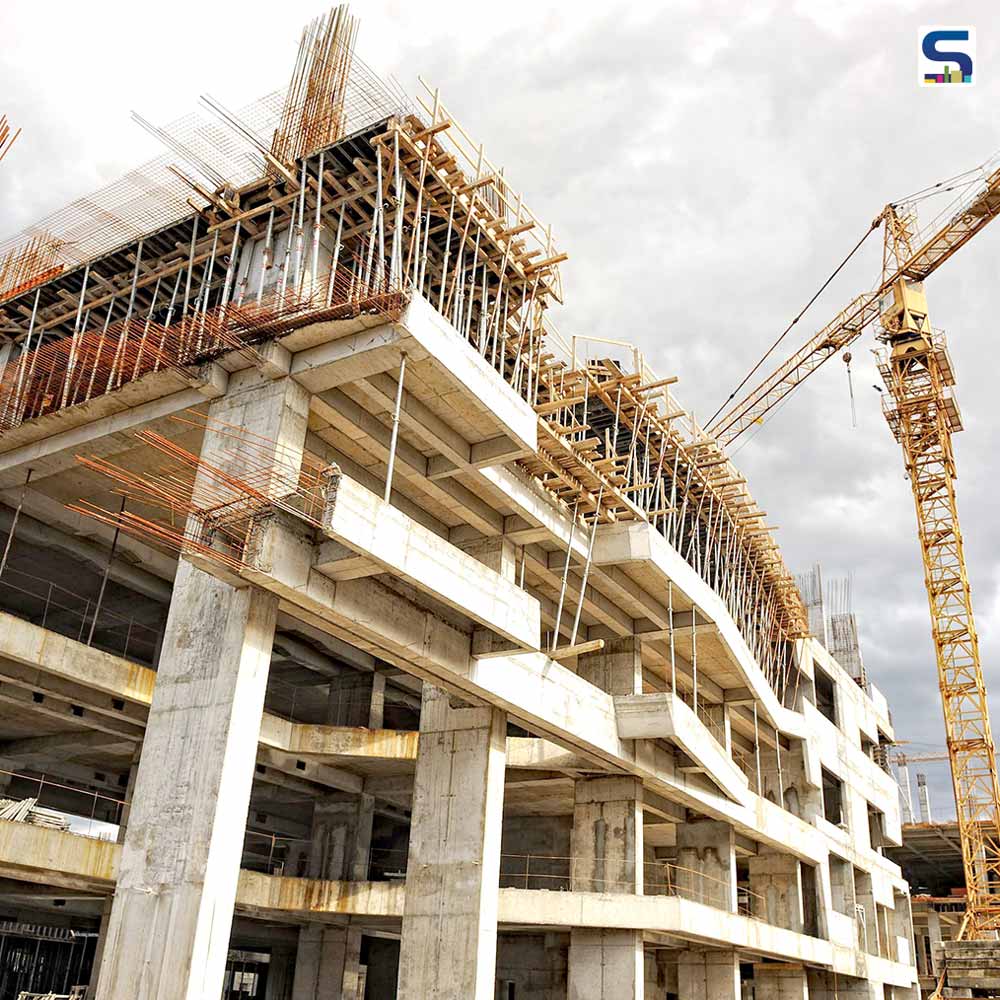
In an effort to fight against climate change and to achieve net-zero emissions by 2070, World Resources Institute (WRI) India, along with partners, Alliance for an Energy Efficient Economy (AEEE), EcoCollab and Mahindra Lifespaces, recently launched a voluntary Business Charter: Value-chain Approach to Decarbonizing the Building and Construction Sector in India.
A step toward decarbonization
India’s long-term vision to go net-zero by 2070, which was presented at COP26 in Glasgow, requires deep decarbonization from all key economic sectors. A solid action plan from the private sector is the need of the hour. To facilitate this, the business charter engaged over 150 key stakeholders through June-July 2021 on four key themes, namely, designing net-zero buildings; construction and operations; occupiers’ perspectives; and material efficiency.
The launch event of the Business Charter: Value-chain Approach to Decarbonizing the Building and Construction Sector in India commenced with Arvind Subramanian, Managing Director and CEO, Mahindra Lifespaces welcome speech.
Launching the business charter, Dr OP Agarwal, CEO, WRI India said, “This business charter is one of the first guiding documents that aims to push an emission heavy sector towards adopting low-carbon, climate-smart solutions that several leading businesses have voluntarily owned. This charter shows the seriousness with which the private sector is embracing this transformation.”
Endorsed by Anand G Mahindra, Executive Chairman, Mahindra Group, with the support from Bloomberg Philanthropies, the charter has already been voluntarily adopted by 16 signatories including prominent industry leaders such as Mahindra Lifespaces Developers, JSW Steel and Lodha Group.
In his video message, Mr Mahindra, said, “I call upon the Indian industry, their CEOs and all real estate businesses and stakeholders to join forces to raise our ambition. Let us accelerate the necessary business transformation to put the Indian building and construction sector on a net-zero pathway.”
Four key themes
India’s building and construction sector, one of the primary GHG emitters, is likely to grow over the next few decades owing to urban migration, expanding middle class and policy push for public housing. The expected rise in urban population to 590 million in 2030 is expected to boost the real estate sector by stating it to become the third largest construction market in the world by 2025, contributing 13 per cent to the country’s GDP.
This demands for a holistic approach to mitigate emissions across the lifecycle of buildings. In the newly released business charter, stakeholders have identified priority action areas across the value chain:
- Adopting science-based emission reduction targets and climate-responsive design strategies
- Mainstreaming climate-aligned building codes and standards as well as low-carbon materials
- Improving operational efficiency and enabling the low-carbon pathway through policy support
Designing net-zero buildings: Approach and key takeaway
Arundhati Seth, Co-founder, EcoCollab moderated the presentation on the approach and key takeaways that laid the blocks and backbone for the development of the business charter.
First session takeaways
Dr Sunita Purushottam, Head of Sustainability, Mahindra Lifespace Developers elaborated on the approach and key takeaways from the first session:
- To set up a common net-zero accounting language which would enable to understand and track the emissions with respect to science-based target
- Need for an ecosystem driven approach collaboratively led by small and large firms coupled with ideation and psychological perception of what needs to be built
- Need for an integrated design approach
Second session takeaway
Anamika Gar, Co-founder, EcoCollab highlighted the second session which was focused on construction and operations, and was address in three phases:
- The first phase dealt with the challenges such as policy framework and development
- The second phase dealt with construction
- The third phase dealt materials and its implementation during construction
An overarching discussion took place on the lack of awareness which was across the stakeholder categories with builders as well as consumers, followed by the implementation of upskill and awareness programmes, need for green financing and government incentives that would push people towards adopting net-zero initiatives, and upgraded technology.
Third session takeaway
The third session focused on the occupiers’ perspective which basically dealt with the existing building style. One of the key understandings that was highlighted was lack of awareness and faster construction activities.
Fourth session takeaway
The final session focused on the material efficiency strategies by mainly focusing on three important key strategies such as:
- Reducing the material use through optimized design strategies and techniques
- Focusing on substitution of high embodied carbon materials with low carbon alternatives
- Recycling and reusing building materials